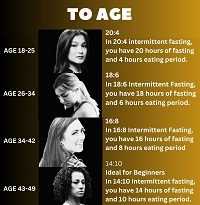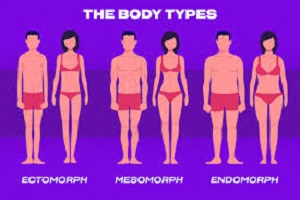Intermittent Fasting for Muscle Gain and Fat Loss
Intermittent Fasting for Muscle Gain and Fat Loss.
Are you baffled by the seemingly endless promotion of diets and weight-loss strategies? In this article, we’ll look at some popular diets and the science behind them.
Related >>>
- Intermittent Fasting for Weight Loss
- Intermittent Fasting ~ What Age Is Best for Man/Woman
- Intermittent Fasting By Age and Gender
There are numerous methods for losing weight and intermittent fasting for muscle gain and fat loss is one of them
Intermittent fasting is a strategy that has gained popularity in recent years.
It is an eating pattern that consists of frequent, short-term fasts – or periods of little or no food consumption.
Intermittent Fasting for Muscle Gain and Fat Loss

It is not a diet, but rather a method of eating that is timed. In contrast to many other diets, intermittent fasting does not specify which foods to eat or avoid.
Intermittent fasting may be beneficial to health and weight loss, but it is not for everyone.
Most people think of intermittent fasting as a weight loss strategy. Fasting for brief periods of time encourages people to consume fewer calories, which may result in weight loss over time.
However, intermittent fasting may also help modify risk factors for health conditions like diabetes and cardiovascular diseases, such as lowering cholesterol and blood sugar levels
This guide will show you everything there is to know about intermittent fasting and weight loss.
What is intermittent fasting?
Intermittent fasting is an eating pattern in which you go without eating for an extended period of time. This period usually lasts between 12 and 40 hours.
During the fast, water, coffee, and other calorie-free beverages are permitted, but no solid foods or calorie-containing drinks are permitted.
Intermittent fasting Diet Plan
Here are 5 of the most popular eating diet charts for weight loss that include intermittent fasting:
- Time-constrained eating. fasting for 12 hours or longer every day and eating during the remaining hours. The 16/8 method is a famous example. It includes a daily 16-hour fast and an 8-hour eating window during which you can eat two, three, or more meals.
- The 5:2 diet. The 5:2 diet entails eating normally 5 days a week and restricting your calorie intake to 500-600 on the other two days.
- Eat, Stop, and Eat. Eat Stop Eat consists of a 24-hour fast once or twice a week.
- Fasting alternate days. The goal of alternate-day fasting is to fast every other day.
- Warrior Diet. The Warrior Diet was one of the first popular diets to incorporate some form of intermittent fasting. It consists of eating small amounts of raw fruits and vegetables throughout the day and one large meal at night.
Choosing an Intermittent Fasting Strategy
There are various methods of intermittent fasting. The following are the most popular fasting times:
- The 16:8 method
- The 5:2 diet
- The warrior diet
- Eat stop eat
- Alternate-day fasting (ADF)
All methods can be effective, but determining which one works best for you is up to you.
Here’s a breakdown of the pros and cons of each method to help you decide which one is best for you.
3 pros of intermittent fasting ~ intermittent fasting benefits/advantages
Researchers have already linked intermittent fasting to numerous health benefits and will continue to examine them.
Furthermore, for some people, intermittent fasting fits well into their long-term model of a healthy and sustainable diet.
If you’re wondering if intermittent fasting is right for you, here are a few advantages to consider.
- May help with weight loss and metabolic health.
- Can be a long-term lifestyle change
- Complements a nutritious, whole-foods diet
Other Benefits include;
Intermittent fasting aids in calorie reduction and weight loss.
The main reason intermittent fasting works for weight loss is that it allows you to consume fewer calories.
All of the different protocols involve skipping meals during the fasting periods.
You will consume fewer calories unless you compensate by eating much more during the eating periods.
According to a 2014 study, intermittent fasting reduced body weight by 3-8% over a 3-24 week period
Intermittent Fasting for Muscle Gain and Fat Loss
When it comes to weight loss, intermittent fasting may produce weight loss at a rate of 0.55 to 1.65 pounds (0.25-0.75 kg) per week.
When calories are matched between groups, studies comparing intermittent fasting and continuous calorie restriction show no difference in weight loss.
When dieting, intermittent fasting may help you maintain muscle mass.
One of the most detrimental side effects of dieting is that your body tends to lose muscle as well as fat
Intermittent fasting has been shown in some studies to be beneficial for maintaining muscle mass while losing body fat.
A scientific review discovered that intermittent calorie restriction resulted in the same amount of weight loss as continuous calorie restriction – but with a much smaller loss in muscle mass.
People also had a 4-7% decrease in waist circumference, indicating that they had lost belly fat.
best intermittent Fasting Muscle Mass
These findings suggest that intermittent fasting can be a useful tool for weight loss.
However, the benefits of intermittent fasting extend far beyond weight loss.
It also has numerous metabolic health benefits and may even help reduce the risk of cardiovascular disease.
Although calorie counting is not generally required when doing intermittent fasting, the weight loss is primarily mediated by an overall reduction in calories intake
3 disadvantages of intermittent fasting ~ intermittent fasting Side effects
Intermittent fasting is one method for controlling your calorie intake and working toward better metabolic health.
Though the eating pattern can certainly be part of a healthy diet, it will most likely require some adjustment at first. Plus, simply put, intermittent fasting is not right for everyone.
Here are a few disadvantages to trying intermittent fasting for the first time.
- Might contradict your intuition
- You will most likely be hungry.
- The side effects may have an impact on your mood.
Intermittent Fasting for Muscle Gain and Fat Loss Bottom Line
Although animal studies have shown some benefits of caloric restriction, no similar benefits of intermittent fasting in humans have been observed.
Intermittent fasting for weight loss
In terms of weight loss, biological changes, compliance rates, and decreased appetite, it is unclear whether intermittent fasting is superior to other weight loss methods.
Certain people who eat only one or two meals per day or do not eat for long periods of time may be more compliant with this type of regimen.
Furthermore, people who eat or snack excessively at night may benefit from limiting their eating time, especially if late eating causes unpleasant side effects such as reflux or disrupted sleep.
FAQs on Intermittent Fasting for Muscle Gain and Fat Loss
People also wonder how much weight they can lose in a month by fasting intermittently.
This is how much weight you can lose with intermittent fasting.
If you follow the fast correctly and ensure that it is aligned with your mind, body, and soul, you can expect to lose 2 to 6 kgs per month, with excellent inch loss and an increase in energy levels and brain function.
How much weight can you lose in a week by fasting intermittently?
Approximately 0.55 to 1.65 pounds
When it comes to weight loss, intermittent fasting may produce weight loss at a rate of 0.55 to 1.65 pounds (0.25-0.75 kg) per week
People also had a 4-7% decrease in waist circumference, indicating that they had lost belly fat.
Is it possible to lose fat solely through intermittent fasting?
With intermittent fasting, you only eat during a specific time.
Fasting for a set number of hours per day or eating only one meal a couple of days per week can help your body burn fat.
Scientific evidence also points to some health benefits.
How long should I fast for intermittent fasting to lose weight?
The diet’s guidelines are straightforward. Every day, a person must choose and follow a 12-hour fasting window.
Fasting for 10-16 hours, according to some researchers, can cause the body to convert fat stores into energy, releasing ketones into the bloodstream.
This should promote weight loss.
Is intermittent fasting effective without exercise?
Simply put, when people practice intermittent fasting without exercising, they lose weight, but a lot of it often comes from the muscle in the lean mass
After a week of intermittent fasting, what happens?
You may also have difficulty sleeping properly during the first week. You may feel hungry or thirsty at night.
You may even wake up frequently to drink water and find it difficult to fall back asleep. It occurs as a result of calorie restriction and changes in lifestyle patterns.
What are the guidelines for fasting sporadically?
The practice of 16/8 intermittent fasting entails restricting your intake of foods and calorie-containing beverages to an 8-hour window each day.
You don’t eat anything for the next 16 hours, but you can drink water and other low-calorie beverages like plain coffee or tea.
What am I allowed to drink while fasting?
Eating or drinking any calories technically breaks a fast.
That is, it is generally acceptable to drink black, unsweetened coffee or tea, as well as water.
What is the proper way to intermittent fast?
The three popular approaches to intermittent fasting are:
The small meal is usually less than 500 calories. Eat normally five days a week and fast twice a week.
Eat normally, but only during an eight-hour period every day.
For example, instead of skipping breakfast, eat lunch around 11 a.m. And dinner by 7 p.m.
Who should not do intermittent fasting?
If you have a high caloric requirement, avoid intermittent fasting.
Individuals who are underweight, struggling with weight gain, under the age of 18, pregnant, or breastfeeding should not try an intermittent fasting diet because they require adequate calories on a daily basis for proper development.
Is intermittent fasting 16/8 effective?
Some 16:8 diet supporters claim it helps control blood sugar levels and improves brain function, but there is little scientific evidence to back up these claims.
And if you don’t eat nutritious food during the eight-hour window, any benefits are quickly lost.
Should I intermittent fast every day?
How Frequently Should You Use It? To put it another way, do you have to practice Intermittent Fasting every day to reap the benefits?
In a nutshell, yes and no
By using Intermittent Fasting even a couple of days per week, you’re allowing your body to get some amount of gut rest and lower insulin levels in order to achieve your goal
Is it better to fast for 12 hours or 16 hours?
People who fast more than 16 or 18 hours a day, for example, have a higher risk of gallstones, according to studies.
They are also more likely to require gallbladder removal surgery. Longo explains that eating for 12 hours and then fasting for 12 hours is probably safe for most people.
What happens after fasting for 16 hours?
If you don’t eat for 10-16 hours, your body will turn to its fat stores for energy, releasing fatty acids known as ketones into the bloodstream.
According to Mattson, this has been shown to protect memory and learning functionality, as well as slow disease processes in the brain.
How do intermittent fasting for beginners?
This can be accomplished by skipping breakfast, eating your first meal at noon, and your last meal at 8 p.m.
Then you’re technically fasting for 16 hours a day and eating only during an 8-hour window. The 16/8 method is the most popular form of intermittent fasting.
Which workout is best for intermittent fasting?
Sprint training is an excellent exercise method to incorporate into your fast period, and to maximize the benefits, you can continue to fast for two to three hours after your workout.
When you fast, does your stomach shrink?
Myth or Fact: If you restrict your food intake, your stomach will eventually shrink, causing you to be less hungry.
Myth is the answer.
Unless you have surgery to intentionally make your stomach smaller as an adult, your stomach pretty much stays the same size.
Does coffee break a fast?
The short answer is that you can drink coffee while fasting intermittently.
However, there is one major caveat to this answer: while you can drink black coffee while intermittent fasting, coffee drinks with cream, sugar, or other forms of calories technically break your fast.
What can’t you do while fasting intermittently?
Intermittent fasting is the practice of limiting your food intake to specific hours or days over the course of a week.
When you do eat, you should avoid processed meats, sugar, trans fats, and refined starches.
Whole foods such as avocados, berries, and lean animal proteins are recommended.
Will intermittent fasting work if I only do it 5 days a week?
The keto diet vs. Intermittent fasting
Unlike the Keto Diet, each day of the intermittent fast is independent of the previous or following day.
This means it can be added once a week, once a week, Monday through Friday, or even every day. Individuals who need to lose a lot of weight can do it 5 days a week.
How successful is intermittent fasting?
Intermittent fasting was found to be effective for weight loss in a systematic review of 40 studies, with a typical loss of 7-11 pounds over 10 weeks.
The studies varied greatly in size and duration, ranging from 4 to 334 subjects and 2 to 104 weeks.
In intermittent fasting, can I skip a day?
If you’ve been fasting consistently for a while, missing a full day of intermittent fasting here and there, or even a couple of days in a row, shouldn’t affect your weight loss results.
Indeed, it can be beneficial to your mindset and long-term commitment to your goals.
What should I eat during 16:8 intermittent fasting?
On the 16:8 diet, you consume only unsweetened beverages such as water, coffee, and tea for 16 hours per day.
Is it possible to do intermittent fasting while suffering from an ulcer?
If you have a stomach ulcer, you should avoid intermittent fasting. Fasting may aggravate the condition, causing chest pain, burning sensations in the abdomen, sour belching, giddiness, headache, and blood vomiting in severe cases.
As a result, it is best to avoid fasting.
Can fasting cause stomach ulcers?
The Causes of Ulcer
Fasting does not result in ulcers.
Diabetes and intermittent fasting
Intermittent fasting has been shown in some studies to increase insulin sensitivity and lower insulin levels in the blood. This is significant.
“Essentially, fasting accomplishes what we prescribe diabetes medications to accomplish: it improves insulin sensitivity,” Horne explains
Headaches and intermittent fasting
Intermittent fasting is frequently associated with headaches. They are most common during the first few days of a fasting protocol
A 2020 review examined 18 studies involving people on intermittent fasting regimens.
Exercise and intermittent fasting
To support the body’s natural circadian rhythm, the best time to exercise while intermittent fasting is usually upon waking or shortly after.
Working out (or eating) too close to bedtime has been shown in studies to disrupt levels of deep and REM sleep, so save exercise for the next day.
Periods and intermittent fasting
Intermittent fasting is not a problem at any stage of the cycle, but longer fasts or water fasts should be avoided while menstruating.
Pregnancy and intermittent fasting
“Intermittent fasting may increase your risk of nutritional or vitamin deficiencies, which may affect fetal development and even increase your risk of pregnancy complications,” she warns.
According to Johns Hopkins Medicine, for a healthy pregnancy, you should consume approximately 300 calories per day.
Blood pressure and intermittent fasting
Intermittent fasting can lower blood pressure, oxidative stress, and the risk of atherosclerosis in humans (5, 10–12).
In healthy nonobese humans, one month of alternate-day fasting effectively lowers blood pressure and heart rate, implying that chronic fasting may enhance parasympathetic activity.
Calorie deficit and intermittent fasting
Intermittent fasting also works by limiting your total calorie intake and putting you in a calorie deficit (using more calories than you consume).
Even if you eat more after your fast, it is unlikely that you will consume as much as you would in a normal eating pattern.
Autophagy and intermittent fasting
Fasting is when you stop eating for an extended period of time.
Stressing your cells to send them into survival mode can induce autophagy.
Fasting can be used to stimulate autophagy.
Fasting depletes your body’s nutritional reserves, forcing it to repurpose cell components in order to function intermittent fasting and muscle gain
According to studies, fasting increases the production of metabolic hormones (including adrenalin) by up to 180%.
Intermittent fasting and belly fat
Intermittent fasting has been shown to help reduce fat, particularly in the belly and trunk, due to its moderate energy restriction.
Weight loss may improve the hormone leptin/adiponectin, which may help you control your appetite.
Growth hormone levels (particularly somatropin) increase as well. This interaction is what allows intermittent fasting to preserve or build muscle while also reducing body fat!


